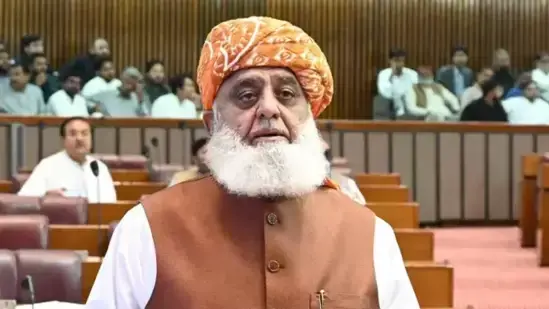A prominent leader from Pakistan has ignited a heated debate by questioning India’s aspirations to become a superpower. The remarks, made against the backdrop of longstanding geopolitical tensions between the two neighboring nations, underscore the complexities of regional dynamics and the pursuit of global influence.
The leader’s assertion, encapsulated in the statement “India aiming to be superpower and we are…”, has reverberated across political circles, prompting reflections on the strategic ambitions of both countries and their respective paths to achieving them. Against the backdrop of India’s rapidly growing economy, burgeoning technological prowess, and ambitious foreign policy initiatives, the question of its rise to superpower status is one that elicits both admiration and apprehension.
For Pakistan, a country with its own aspirations for regional influence and global recognition, India’s ascent poses significant challenges and opportunities. The historical animosities and territorial disputes between the two nations have shaped their interactions on the global stage, with competition for power and influence driving much of their diplomatic maneuvering.
At the heart of the debate lies a fundamental question: what does it mean to be a superpower in the 21st century? Traditionally defined by military might, economic dominance, and cultural influence, the concept of superpower status has evolved in an era characterized by interconnectedness, technological innovation, and shifting geopolitical dynamics.
India’s rapid economic growth, burgeoning population, and strategic location have positioned it as a key player in the global arena. With a thriving IT sector, a burgeoning space program, and a growing presence in international forums, India has emerged as a formidable force to be reckoned with on the world stage.
However, challenges abound on the path to superpower status, including persistent socio-economic disparities, geopolitical rivalries, and internal governance issues. Critics argue that India’s aspirations to become a superpower must be tempered by a commitment to addressing these underlying challenges and fostering inclusive growth and development for all its citizens.
Moreover, the concept of superpower status itself is subject to interpretation and debate. While some view it as a measure of military strength and geopolitical influence, others emphasize the importance of soft power, cultural diplomacy, and global leadership on issues such as climate change, healthcare, and poverty alleviation.
Against this backdrop, Pakistan’s leader’s remarks in Parliament serve as a poignant reminder of the complex dynamics at play in South Asia and the broader Indo-Pacific region. As India and Pakistan navigate their respective paths to prominence, they must reckon with the legacies of colonialism, partition, and conflict that continue to shape their interactions and perceptions of one another.
For Pakistan, the pursuit of regional stability and security remains paramount, with a keen eye on India’s actions and intentions. The specter of nuclear confrontation looms large over the subcontinent, underscoring the importance of dialogue, diplomacy, and confidence-building measures to prevent escalation and foster mutual understanding.
In the final analysis, the debate over India’s aspirations to become a superpower is not merely a question of geopolitical rivalry, but a reflection of the broader aspirations and anxieties of nations striving to assert their place in an increasingly interconnected world. As India charts its course on the global stage, it must do so with a sense of humility, responsibility, and a commitment to upholding the principles of peace, justice, and prosperity for all. Only then can it truly claim the mantle of superpower status, not just in name, but in deed.
Furthermore, the leader’s remarks underscore the importance of constructive engagement and dialogue between India and Pakistan to address mutual concerns and build trust. Despite the historical tensions and unresolved conflicts between the two nations, there is a shared imperative to promote peace, stability, and prosperity in the region. By transcending the confines of zero-sum thinking and embracing a spirit of cooperation and collaboration, India and Pakistan can unlock the full potential of their bilateral relationship and contribute to a more peaceful and prosperous South Asia. Only through genuine dialogue and a commitment to resolving differences through peaceful means can the region move closer to realizing its collective aspirations for a brighter future.

